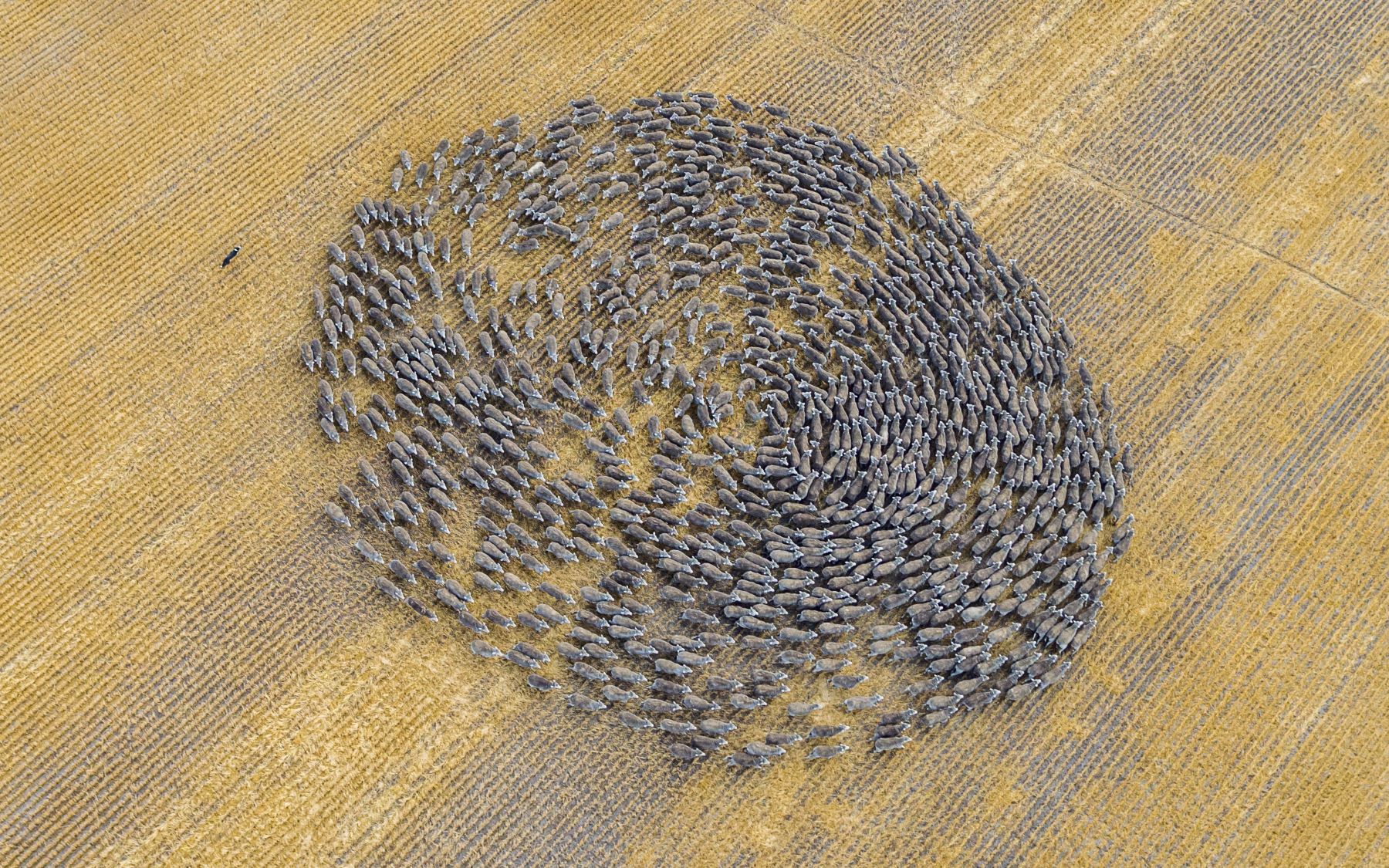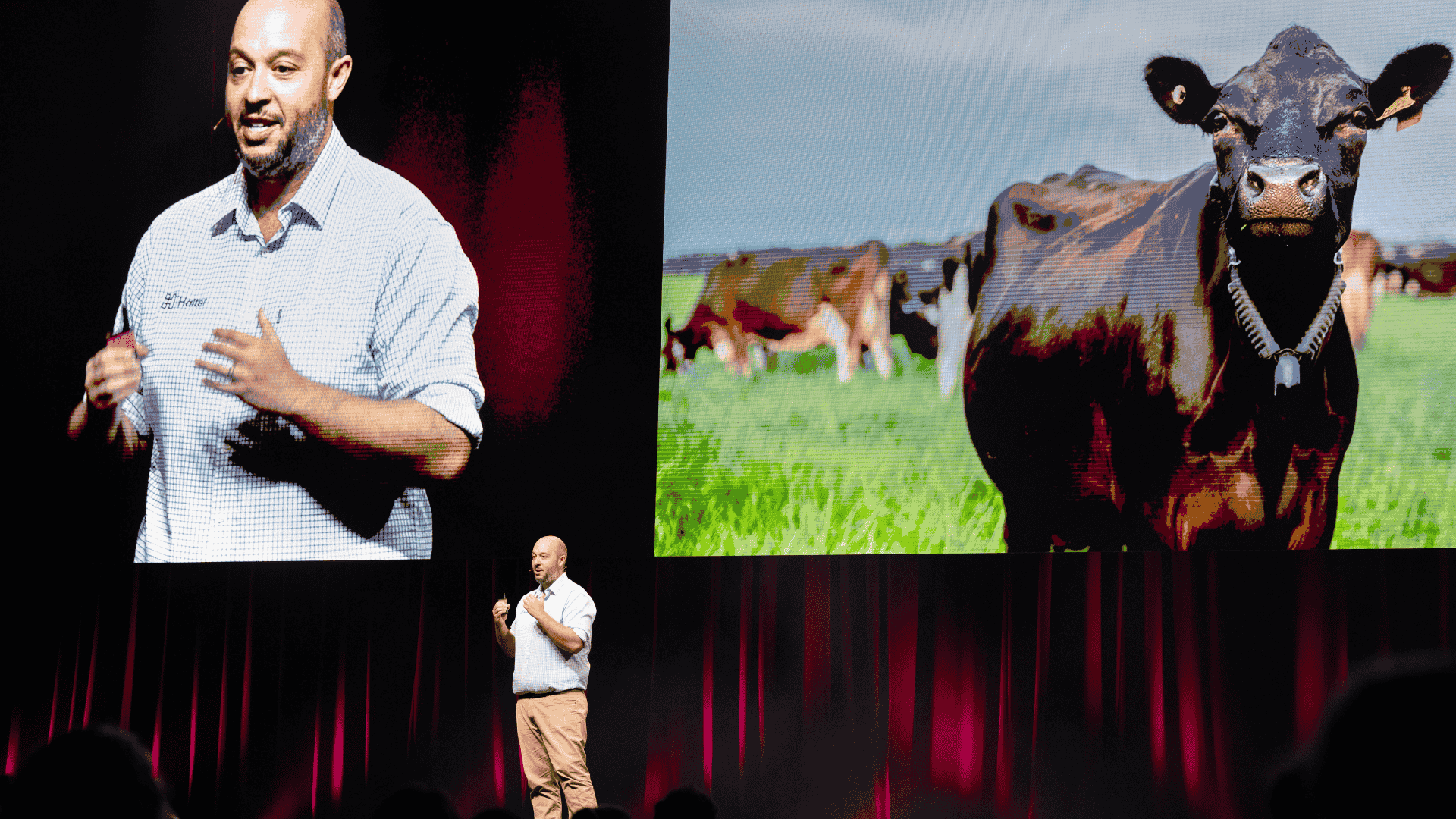Virtual fencing gets green light at ag tech event
Virtual fencing has been given the green light in Victoria, with Halter’s P5 electronic collar system on Wednesday becoming the first technology...

Like many farmers, I’m reeling this week after the announcement on Saturday morning that live sheep export will be banned. In many ways, it feels like just another thing that we have to deal with when there seems to be an onslaught at the moment.
While I am less directly hit than WA producers, we will still take a blow in SA. And, like so many in WA at the moment, my husband and I are navigating the stress of very dry farming. Juggling sowing, feeding sheep, carting water, decision-making, and everyday life - well, it all just seems a lot right now.
When life feels chaotic, like the rug is being ripped out from under you at every turn, it can be hard to know what to do next.
Here's a few tools to help you navigate this difficult time.
Focus on what is in your control - but this is easier said than done. When we are facing crises, fear, anxiety, and anger are inevitable, normal and natural responses.
Our brain is wired to look out for potential dangers and threats, and something that threatens the future viability of your farm and business is a threat.
However, it can become easy to get caught up in worries about the future, stewing over and ruminating on things that are out of your control: why has the government made this choice; how can we overturn the government; how this will impact our business; will we still be able to farm; how will I cope; how will the family manage - and on and on we go.
While it’s normal and natural to get caught up in these thoughts and worries, we need to pause and reflect on how useful or helpful this is. Usually, the more that we focus on what’s not in our control, the more hopeless, anxious and angry we are likely to feel.
So, the single most important thing to do in this situation is to focus on what you can control.
What can we control? We have limited control over government decisions, the weather, and other people’s behaviours. We also have much less control over our thoughts and feelings than we believe.
READ MORE: Farmers walk out on Ag Minister's budget speech on same day Biosecurity Levy shelved
When it all boils down, what we have control over are the choices we make in our own behaviour, moment by moment. We can’t choose our thoughts, we can’t choose our feelings, but we can choose how we respond and act.
How can we take control of our behaviour, especially in the heat of the moment?
We need to find a way to drop anchor, get centred, and weather the storm. Whether we like it or not, we will all experience “emotional storms”. We get caught in unhelpful thoughts, pulled in by painful feelings, and if we get swept away by these painful thoughts and feelings, we lose contact with making helpful choices in the moment. I like to use the ACE formula as a practice to drop an anchor during emotional storms (Russ Harris, 2020).
A = Acknowledge thoughts and feelings
C = Come back into your body
E = Engage in what you’re doing
Acknowledge thoughts and feelings
Painful, challenging, tricky thoughts and feelings are going to show up whether we want them to or not. With kindness and curiosity, notice, observe and acknowledge whatever is showing up inside of you. Thoughts, feelings, sensations, emotions, urges, memories - just notice them, observe what’s coming up. It can help to name and put words to them, so you may silently say to yourself “I’m noticing anxiety”, “Here is anger”, “I’m noticing my mind worrying”.
I know it seems strange, but just experiment, try it out and see what happens.
As you acknowledge your thoughts and feelings, then….
Come back into your body
Connect with your physical body in this moment right now. You’ll find your own way of doing this that works for you, here are a few things you can try.
Push your feet hard into the floor.
Bring your attention to your breathing.
Slowly stretching your arms or neck.
Slowly press your fingertips and hands together.
As you do this, remember that you are not trying to block out, avoid, or distract yourself from uncomfortable feelings. They are still going to be there. You are choosing what you put your attention on. As you connect with your body, you will gain as much control as possible over your decisions and physical actions.
So now, you are acknowledging thoughts & feelings, centring back into your body, and then…
Engage in what you’re doing
Bring your attention to this moment right now. Notice and observe your senses to bring yourself into the present.
Notice what you can see.
Notice what you can hear.
Notice what you can smell or taste.
Notice what you can feel or touch.
Notice what you are doing.
Choose to bring your full attention to the activity at hand and be present in what you are doing right now. If you are shifting sheep, bring your attention to the sheep, the sounds, the sights, the smells, the feeling in your body. If you are having coffee (and reading this article), practice being here right now.
It may seem relatively straightforward. However, the more you can practice dropping an anchor and practicing ACE, during emotional storms and times of overwhelm, the more opportunities you can have to focus on what is in your control and make choices and decisions to take care of yourself and those around you.
Steph Schmidt is a clinical psychologist, farmer, wife and mum of three young boys who is based on farm at Worlds End, South Australia. Sign up for her Little Rocks Reminders, weekly emails with tips to stay on track www.stephschmidt.com.au/littlerocks
If this article has raised issues for you or you need to talk to someone there are excellent resources available. Visit this page for details about where you can find support.

Virtual fencing has been given the green light in Victoria, with Halter’s P5 electronic collar system on Wednesday becoming the first technology...
.png)
What if the real issue with “kids not stepping up” isn’t them at all?In this episode, Ben Law sits down again with high-performance advisor Chris...
.png)
As Victorians begin the long recovery following devastating bushfires which burnt more than 400,000 hectares, a pair of contract...